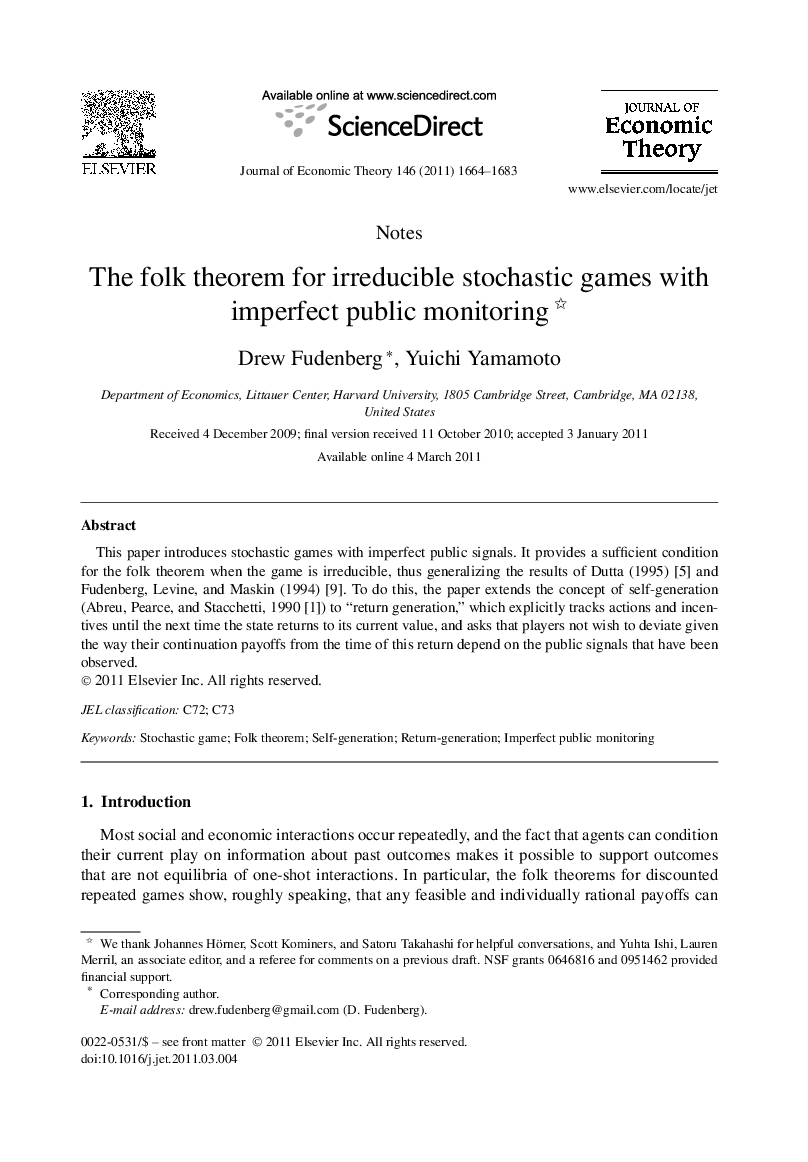| Article ID | Journal | Published Year | Pages | File Type |
|---|---|---|---|---|
| 957308 | Journal of Economic Theory | 2011 | 20 Pages |
Abstract
This paper introduces stochastic games with imperfect public signals. It provides a sufficient condition for the folk theorem when the game is irreducible, thus generalizing the results of Dutta (1995) [5] and Fudenberg, Levine, and Maskin (1994) [9]. To do this, the paper extends the concept of self-generation (Abreu, Pearce, and Stacchetti, 1990 [1]) to “return generation,” which explicitly tracks actions and incentives until the next time the state returns to its current value, and asks that players not wish to deviate given the way their continuation payoffs from the time of this return depend on the public signals that have been observed.
Related Topics
Social Sciences and Humanities
Economics, Econometrics and Finance
Economics and Econometrics
Authors
Drew Fudenberg, Yuichi Yamamoto,
